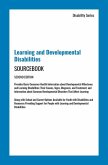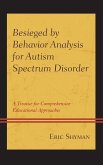Developmental Co-ordination Disorder (DCD), which is also known as dyspraxia, is a condition that is most commonly associated with childhood, but its effects continue into adulthood for those with moderate to severe difficulties. The result of this is that people continue to struggle with daily living and learning tasks, and have problems with everything from personal relationships to work and opportunities in further education. There is evidence that this can culminate in an increased risk of mental health problems developing. Written by an occupational therapist who has worked extensively with adults and young people with DCD and its related conditions, this book provides the reader with an overview of the problems these people encounter and suggests possible practical solutions and strategies that professionals can use with individuals to improve their personal, social and working lives. All professionals who are involved with adults with DCD, including those in health service, education, social and employment services will find this a useful resource.
Hinweis: Dieser Artikel kann nur an eine deutsche Lieferadresse ausgeliefert werden.
Hinweis: Dieser Artikel kann nur an eine deutsche Lieferadresse ausgeliefert werden.








